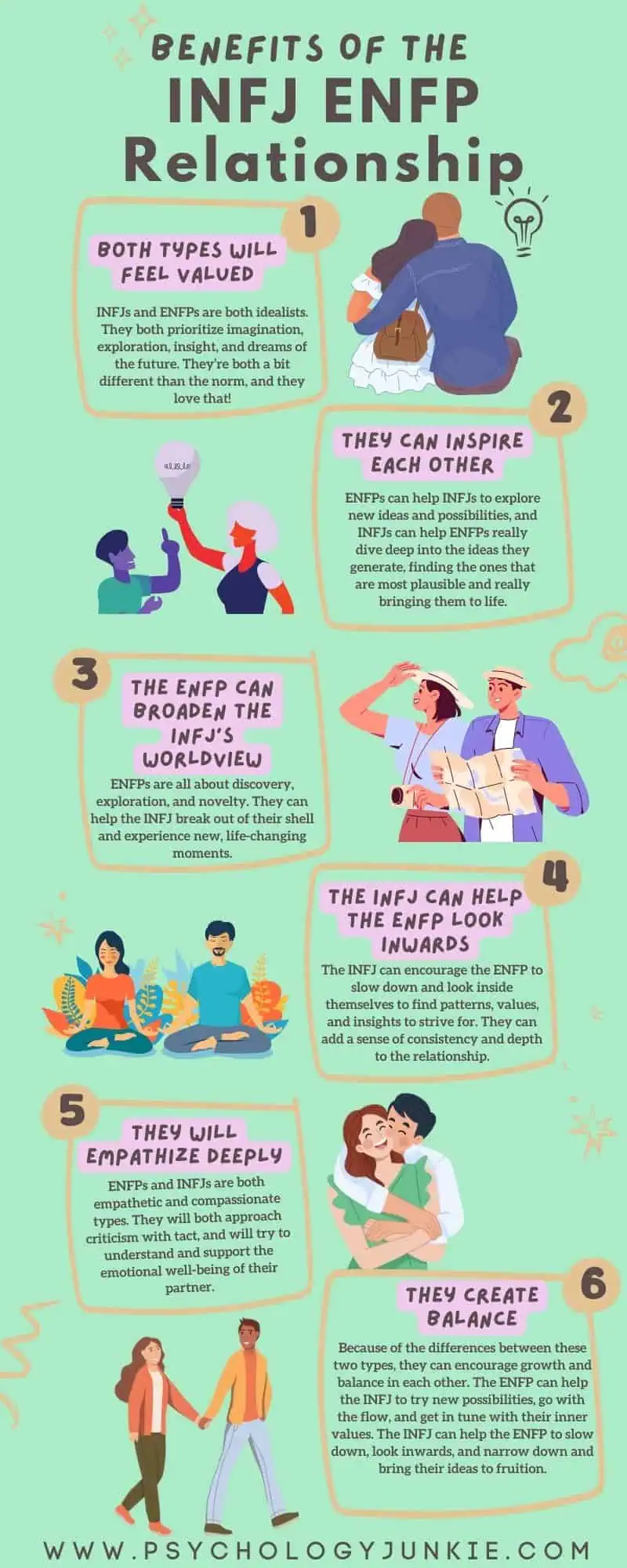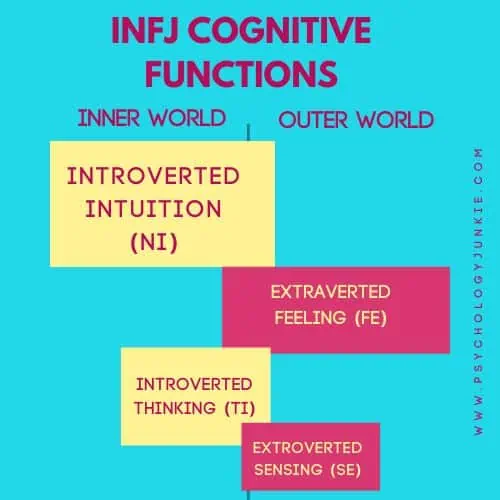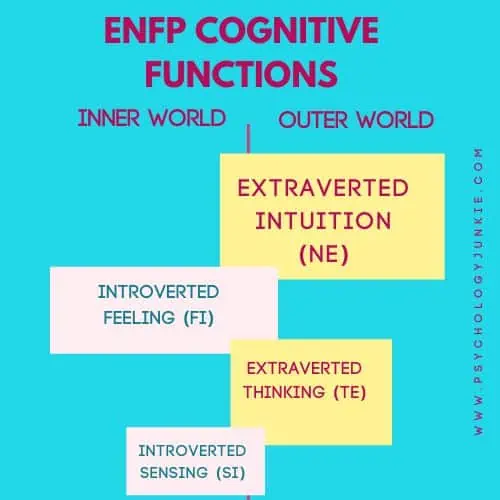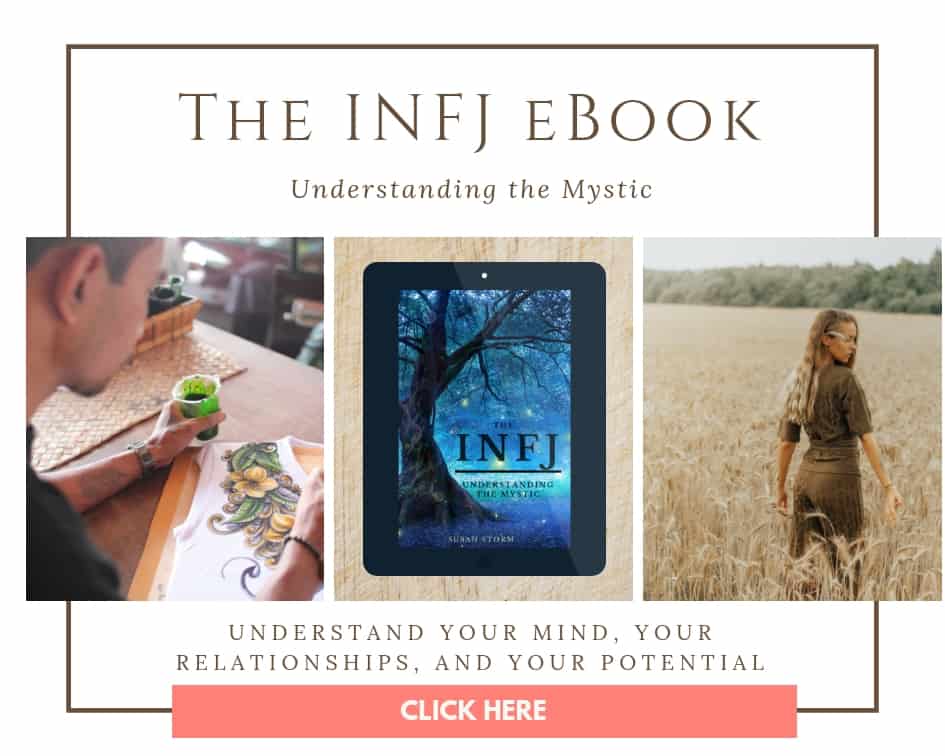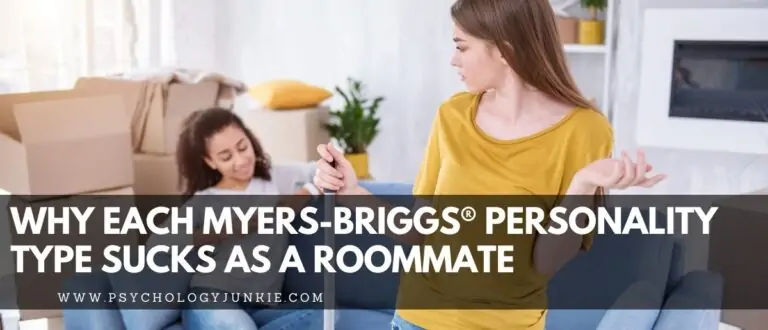The INFJ and ENFP Relationship: How Compatible Are They?
Dating is hard. Everyone’s (usually) on their best behavior, but sometimes that just makes it feel like you’re not getting the “real” person. It can also be super awkward. Maybe you can’t think of anything to talk about, or your date is talking so much you can’t get a word in edgewise.
A lot of people come to me asking if there’s a “best” match for their personality type. And as nice as it would be to give them a simple answer, it’s really not all that simple. So much depends on values, trust, and being a plain old decent human being.

But let’s talk about the INFJ and ENFP match. Is it a good one? Bad one? Should you run for the hills or jump for joy? Let’s break it down:
Not sure what your personality type is? Take our personality questionnaire here. Or you can take the official MBTI® here.
The INFJ and ENFP Relationship: Best Match or Worst Mistake?
INFJs and ENFPs: Idealists at Heart
INFJs and ENFPs are both Idealists. This means that they long for a better future and often think ahead, visualizing the way the world could be. As intuitives, they both love to get deep and consider concepts, theories, and ideas. The world of the imagination is far more fascinating to both of these types than the world of reality. This doesn’t mean they are unrealistic necessarily, but it means that they are more naturally wired to consider the abstract.
INFJs and ENFPs are both feeling types as well. They lead with their hearts. INFJs are deeply concerned with how others feel and maintaining harmony. ENFPs are deeply concerned with their inner values and staying true to themselves no matter the cost.
Because both INFJs and ENFPs are Idealists, they have a natural tendency to be drawn towards each other. Many late nights will probably be spent staying up and chatting about the meaning of love, life, the future, “crazy” ideas, or insightful predictions. They’re also going to be conscientious about how they impact each other; empathetic, compassionate, slow to critique.
The fact that these two are Idealists gives them a certain sense of being ‘Kindred spirits.’ At the same time, there are some pretty distinct differences between the two. Let’s get into those:
The Introvert/Extrovert Difference:
There are pros and cons to the introvert/extrovert match. On one hand, they can balance each other out. INFJs left to their own devices may become too reclusive and lose touch with certain parts of their personality (most notably, their feeling side).
ENFPs left too much to their own devices may become too focused on the outside world at the expense of their deeper and more insightful core.
The ENFP can help the INFJ to break out of their shell and interact with the world around them, engaging in experiences that delight and help them grow.
The INFJ can help the ENFP to look inwards and reflect more before acting, getting deeper in touch with their feelings and values.
The downside is that at times the two can misunderstand each other or wear each other out. ENFPs who push their INFJ partners to be more outgoing, social, and extroverted may find their partner resenting them rather than rejoicing with them. INFJs need ample alone time to reflect, think, and process what’s happening around them. They are easily overstimulated and need regular breaks to recharge. If their partner is pushing them too hard to be social they may just fizzle out due to low energy and overstimulation.
In turn, if the INFJ is unwilling to push themselves to be a little more social, the ENFP can find themselves feeling drained and bored. Just as the INFJ needs time to recharge and refresh themselves with alone time, the ENFP needs time with others to refresh themselves and feel inspired. An INFJ partner who is too reclusive may leave the ENFP feeling lonely, defeated, and confused.
Compromise is key in making an introvert/extrovert relationship work. And communication is also crucial. Both partners need to find a way to make the other person feel heard, seen, and valued for who they really are. Remember, no one is a pure introvert or extrovert. Carl Jung, the founder of typology, famously said this himself. It’s healthy as an introvert to spend some time with people, and it’s healthy as an extrovert to spend some time alone. These things may feel uncomfortable at first, but they’re both important for each type’s personal growth.
The Judging/Perceiving Difference
ENFPs are Perceiving types and INFJs are Judging types. What does this mean? A Perceiving preference means that ENFPs like to have their options open, to be flexible, spontaneous, and free from a lot of structure or routine. In contrast, Judging types like having a plan, a schedule, a clear goal and decision.
Sometimes the Judging/Perceiving difference can be a good thing. ENFPs can help INFJs to be more relaxed, go with the flow, and not feel as tied to their routine. They can help them find the joy in spontaneous fun, surprises, and swapping the to-do list for a day of following their hearts on a whim.
In turn, ENFPs may find the INFJs Judging side to be dependably comforting. The INFJ can help the ENFP to be more consistent, decisive, and structured.
The key here, as with everything, is balance. Both partners will need to compromise a little to make space for their partner’s preferences. Because if this doesn’t happen, there will be drama.
An ENFP who feels pressured to behave like a Judger will feel resentful, stifled, and undermined. They will likely feel like their options are fading away and they have someone controlling them, which is never a good thing.
An INFJ who feels too pressured to behave like a Perceiver will likely feel overwhelmed, scattered, and stressed. They will likely feel like they are losing focus, unsure of what will happen, stressed about unforeseen interruptions that could throw them off their course.
Ideally, both partners will find a way to work together. This will take getting to know themselves, their limits, the differences they can accommodate and the changes they can’t emulate without feeling stressed or burdened.
You might also like: Why Judgers and Perceivers Drive Each Other Crazy
Cognitive Function Differences:
Let’s take a quick look at the cognitive functions of both of these types. If you’re not sure what cognitive functions are, let me break it down quickly:
Cognitive functions are the mental processes we use to perceive the world and make judgments and decisions. We all have the same cognitive functions, just like every car has a steering wheel, a gas pedal, and a brake. But each of us prioritizes some over others.
The INFJ has the following cognitive functions:
Dominant: Introverted Intuition (Ni)
Auxiliary: Extraverted Feeling (Fe)
Tertiary: Introverted Thinking (Ti)
Inferior: Extraverted Sensing (Se)
Let’s talk about these in a way that’s simple to understand.
INFJ Cognitive Functions:
- Dominant: Introverted Intuition (Ni)
- This is like having a superpower for seeing patterns and connections that others might miss. INFJs use this to make sense of the world in a deep, almost mysterious way. They often just “know” things without being able to explain why—they see the big picture and understand how things might play out in the future.
- Auxiliary: Extraverted Feeling (Fe)
- INFJs are very tuned in to how others are feeling. This function makes them great at understanding and caring for the emotional needs of people around them. They want to create harmony and make sure everyone is getting along.
- Tertiary: Introverted Thinking (Ti)
- INFJs like to dig deep into ideas and figure out how things work. When they use this function, they are focused on getting to the truth of a situation or idea, but they do this in a quiet, reflective way.
- Inferior: Extraverted Sensing (Se)
- This function is about noticing the details in the world around them. For INFJs, this can be a bit of a challenge. They might miss small details or feel overwhelmed by too much sensory input, like loud noises or busy environments.
You can find out more about the INFJ’s Cognitive Functions Here: The INFJ’s Cognitive Functions
ENFP Cognitive Functions:
- Dominant: Extraverted Intuition (Ne)
- ENFPs are like idea machines! They love to explore possibilities, connect ideas, and imagine many possibilities. This function makes them great at brainstorming and seeing many different paths they could take in life.
- Auxiliary: Introverted Feeling (Fi)
- This function is all about staying true to who they are. ENFPs have a strong sense of their own values and what feels right or wrong to them. They want to live in a way that aligns with their inner beliefs.
- Tertiary: Extraverted Thinking (Te)
- ENFPs can use this function to organize their ideas and make things happen. It helps them to be efficient and get things done when they need to, though it might not come as naturally as their other functions.
- Inferior: Introverted Sensing (Si)
- This function involves recalling details from the past and noticing routines. ENFPs might struggle with this because they prefer to focus on what’s new and exciting rather than what’s familiar or traditional.
How These Functions Impact Their Relationship:
The way INFJs and ENFPs use these functions can create both harmony and tension in their relationship.
- Big Picture Thinking vs. Idea Generation:
- INFJs and ENFPs both love to think about possibilities and the future, but they do it in different ways. INFJs might focus deeply on one vision or path (Ni), while ENFPs might explore many different ideas (Ne). This can be exciting because they can inspire each other, but it can also be challenging if they can’t agree on which path to take. Or the INFJ might feel frustrated when they’ve settled on one idea and want to dive deep into it and the ENFP is just generating more and more alternate ideas.
- Emotional Understanding vs. Personal Values:
- INFJs are great at understanding others’ feelings (Fe) and often put others’ needs first. ENFPs, on the other hand, are driven by their own values and staying true to themselves (Fi). This can create a balance where the INFJ’s empathy and the ENFP’s authenticity complement each other. The ENFP can help the INFJ to get more in touch with what they want and help them avoid being a people-pleaser. The INFJ can support the ENFP in an empathic way. However, it can also lead to misunderstandings if the INFJ feels the ENFP is being too self-focused, or if the ENFP feels the INFJ isn’t in tune with themselves enough.
- Organizing Ideas vs. Staying Flexible:
- INFJs might prefer having a plan (Ni and Fe), while ENFPs might prefer keeping things open-ended and flexible (Ne and Fi). This difference can help them balance each other—INFJs can help ENFPs stay grounded, and ENFPs can help INFJs loosen up. But if they’re not careful, it can also lead to frustration if one partner feels too constrained or the other feels things are too chaotic.
The Joy of The INFJ and ENFP Relationship:
Both of these personality types are deeply passionate about making the world a better place, and their shared idealism creates a bond that’s hard to break. They can spend hours dreaming about the future, discussing their hopes and visions, and finding ways to make those dreams a reality. This shared enthusiasm for meaningful conversations means they rarely run out of things to talk about.
One of the most beautiful aspects of this relationship is the way these two types inspire each other. The ENFP’s creative energy and zest for life can lift the INFJ out of their intense introspection, encouraging them to explore the world with a sense of curiosity and excitement. The INFJ, with their deep understanding and empathy, offers the ENFP a safe space to express their innermost thoughts and feelings. This creates a relationship where both partners feel seen, heard, and valued.
INFJs often have a strong sense of purpose, but they can sometimes get bogged down by the weight of their responsibilities and the complexities of their inner world. The ENFP can help lighten that load. With their infectious optimism and playful spirit, ENFPs remind INFJs to take a step back, breathe, and do something just for them. They show the INFJ that it’s okay to take risks, to be spontaneous, and to embrace the unknown with a sense of adventure.
On the flip side, the INFJ provides a grounding influence for the ENFP. While ENFPs are full of ideas and possibilities, they can sometimes struggle with follow-through or feel overwhelmed by the sheer number of paths they could take. The INFJ, with their calm and focused nature, helps the ENFP to channel their energy into something tangible and meaningful. They provide the structure and support that the ENFP needs to turn their dreams into reality.
But it’s not just about what they can do for each other—it’s also about how they grow together. ENFPs and INFJs both have a deep desire for personal growth, and in each other, they find a partner who’s just as committed to self-improvement. They challenge each other to become better versions of themselves, whether it’s by encouraging each other to pursue new interests, face their fears, or explore new ideas. This mutual growth isn’t always easy, but it’s incredibly rewarding.
In a world that can often feel harsh and unkind, the ENFP-INFJ relationship offers a refuge. Together, they create a space where empathy, understanding, and compassion are the norms. They support each other through thick and thin, offering comfort and reassurance when the world feels overwhelming. This sense of mutual support and unconditional acceptance is what makes their bond so special.
What Do You Think?
Have you ever been part of this relationship pairing? Do you have any tips or insights to share with fellow INFJs or ENFPs? Let us know in the comments, we’d love to hear from you!
You can also discover more about the INFJ personality type in my eBook, The INFJ – Understanding the Mystic.
Other Articles You Might Enjoy:
Quiz: Find Your Ideal Partner’s Personality Type
The Most to Least Affectionate Myers-Briggs® Personality Types, Ranked


